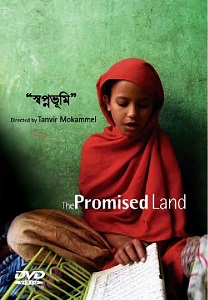| Swapnabhumi | |
|---|---|
 DVD cover | |
| Bengali | স্বপ্নভূমি |
| Directed by | Tanvir Mokammel |
| Screenplay by | Tanvir Mokammel |
| Produced by |
|
| Narrated by | Chitralekha Guho |
| Cinematography | Anwar Hossain |
| Edited by | Mahadeb Shi |
| Music by | Syed Shabab Ali Arzoo |
Production company | Kino-Eye Films |
Release date |
|
Running time | 90 mins |
| Country | Bangladesh |
| Language | Bengali |
Swapnabhumi (The Promised Land) is a 2007 Bangladeshi documentary film by Tanvir Mokammel. [1] The film tells the plight of Stranded Pakistanis in Bangladesh, who are also identified as Biharis. [2]